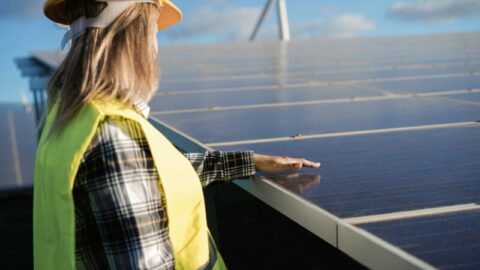Battery energy storage systems are powering ahead around the country with the launch of two new community batteries in Western Australia and the Northern Territory.
The City of Busselton in south-west Western Australia has launched a new Tesla 464 kilowatt hour (kWh), while a new project to install a 970kWh battery energy storage system in Titjikala, Northern Territory, has been commissioned.
Busselton’s new utility-grade battery will improve power quality and help upgrade the electricity network in the region.
Integrating batteries into local communities improves state power provider Western Power’s ability to balance neighbourhood load profiles during the day and allows more homes to install solar panels.
Western Australian Energy Minister, Bill Johnston, said, “The State Government continues to roll out community batteries, as part of its Energy Transformation Strategy, which is contributing to a greener energy future for Western Australians.
“Residents of Busselton have really embraced the sun’s energy; in the past ten years there has been a sixfold increase of solar panels.
“The Busselton community battery will also allow residents with solar panels to store excess solar power for use during peak times.”
Located on Shovelboard Way, the Busselton battery is the fifth Western Power community battery, of this size, to be installed in Western Australia. Other locations include Ellenbrook (Perth), Meadow Springs and Falcon (Mandurah), and Kalgoorlie.
In late 2020, Synergy will offer eligible households the opportunity to store their excess solar energy in the community battery, allowing them to optimise their energy use without having to purchase their own household battery storage system.
South West Region MLC, Sally Talbot, said, “This is an exciting initiative for the Busselton region and community.
“Busselton is already a leader in the solar space, with more than 4,700 rooftops featuring solar panels.”
Meanwhile, in the Northern Territory, a new battery energy storage system (BESS) will augment the community’s existing 400kW solar array to deliver increased cost savings and environmental benefits from decarbonisation.
Once completed, the project will make Titjikala the second remote community where energy generation costs will be significantly reduced because of the use of solar and battery technology.
The addition of the BESS is projected to increase fuel savings from 18 per cent due to solar alone to 66 per cent.
Power and Water Executive General Manager Power Services, Ross Musgrove, said, “This project is another great example of how Power and Water is continuing to transform its remote energy supply portfolio to include renewable energy sources.
“We’ve built on our learnings from the flagship diesel/solar/battery site at the community of Nauiyu (Daly River) under our Solar Energy Transformation Program (SETuP).
“We’re also continuing to build internal expertise and capacity by including operational staff from the Alice Springs region to give them first-hand project experience, technology familiarisation and job training opportunities.”
The existing generation assets in the community include a three-engine diesel power station and a 400kW PV array previously installed as part of SETuP.
The project, valued at an estimated $950,000, will be funded by the Northern Territory Government through its annual capital program for Power and Water’s remote community service delivery.
The project is expected to be completed by early 2021.
BESS technology allows storage of excess solar energy and allows the diesel engines to be turned off during the daytime. The diesel engines will start up again overnight when the BESS is depleted.
The transitions between diesel on and off states will happen seamlessly without interruption to customer electricity supply.
Once the BESS is installed, Power and Water expect to save approximately 156,000 litres of diesel annually.
The project will also provide additional environmental benefits for the community including reduced noise, pollution and traffic on the roads from heavy vehicle diesel delivery trucks.
The decarbonisation benefits from this project will support the Northern Territory Government’s renewable energy target of 50 per cent renewables by 2030.
















